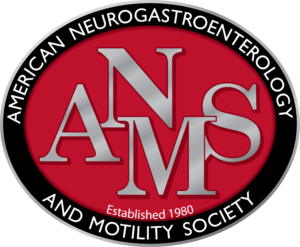Worried about losing access to Domperidone?
Join the Campaign
The International Foundation for Gastrointestinal Disorders (IFFGD) along with the American Neurogastroenterology and Motility Society (ANMS) are launching a letter writing campaign to the members of Congress asking them to urge the FDA to find a resolution for patients to continue accessing domperidone.
What is domperidone?
Domperidone is a prokinetic dopamine antagonist used to prevent nausea and vomiting, while increasing contractions of the stomach, and thus gastric motility.
How You Can Help
Use the button below to complete the form. We will send the letter below to your Congressional Representative
Letter to Your Congressional Rep
Dear Lawmakers,
I am your constituent, and I live with a chronic medical condition called gastroparesis. Gastroparesis (GP) is a condition of slowed stomach emptying with no intestinal blockage. Healthcare providers often refer to this as delayed gastric emptying. This is a motility disorder where the stomach does not empty food as quickly as it should. GP symptoms include abdominal pain, nausea, vomiting, reflux, and early fullness with little food. Symptoms can lead to unintentional weight loss, malnutrition, and a decrease in quality of life. I am fortunate because I have been able to keep my symptoms relatively controlled, between dietary intervention, manual therapy, and, most importantly, medication. I am writing to you for help because this is at risk.
Around the world, one of the medical interventions for gastroparesis is domperidone – a prokinetic dopamine antagonist used to prevent nausea and vomiting, while increasing contractions of the stomach, and thus gastric motility. Janssen Pharmaceuticals manufactures domperidone under the name Motilium.
Domperidone is not sold legally within the United States, due to its risk of cardiac arrhythmias. In 2004 the FDA released a public warning of domperidone’s cardiac risk due to individuals illegally importing the medication to increase maternal lactation. However, the FDA recognized the clinical benefit of domperidone to patients with severe gastrointestinal disorders, like me and created an Expanded Access Use (EAU) program for patients. This EAU program requires prescribers to register and to regularly monitor their patients for cardiac changes (i.e. obtain an EKG every 3 to 6 months).
Through this EAU program, I have been able to legally obtain this life-changing medication (albeit not covered by insurance) from an FDA-designated pharmacy. Thanks to domperidone I can keep small amounts of food and liquid down at a time.
The FDA recently announced that in coming months this EAU program will likely end due to supply chain changes – note that this is a change due to product access, not due to policy change. They announced late last year that they have known about this possibility since 2022; however, the gastroparesis community, the healthcare providers that treat us, and the pharmacy that dispenses the medication were not told. (How to Request Domperidone for Expanded Access Use | FDA )
Without access to this medication there is a high likelihood that I – along with many other gastroparesis patients – will need enteral feeding (i.e. a jejunostomy tube, or a feeding tube that goes directly into the intestines) to stay alive.
The FDA has given little information on how this will move forward, simply stating that they have been unable to find another supplier. I ask you to urge the FDA to find a resolution to this for patients like me to continue accessing domperidone – whether through a new designated supplier or pharmacy, use of compounding pharmacies, or ordering from other countries.
Please help us. Thank you for your time and consideration.



